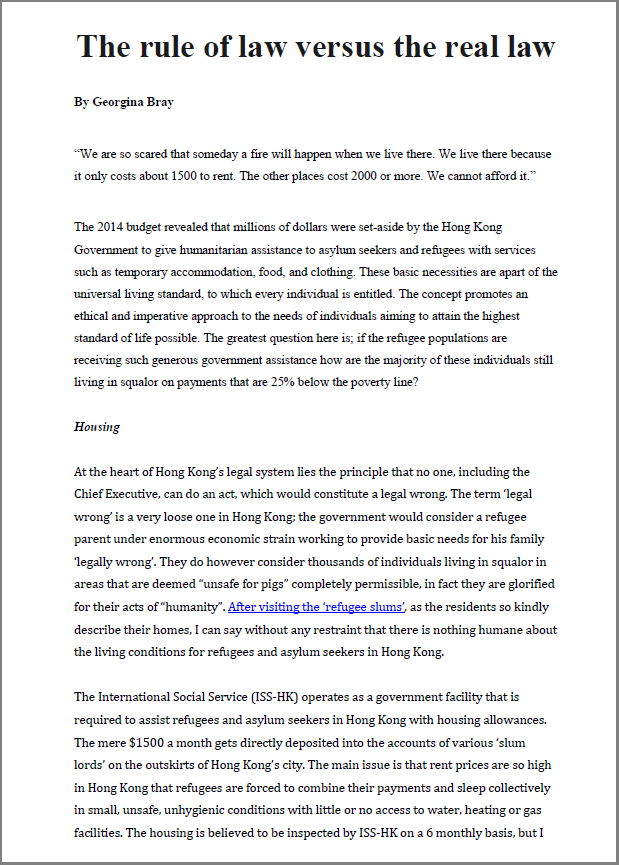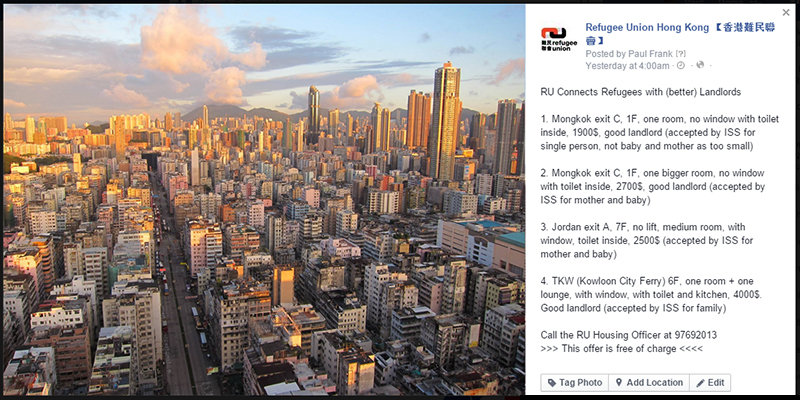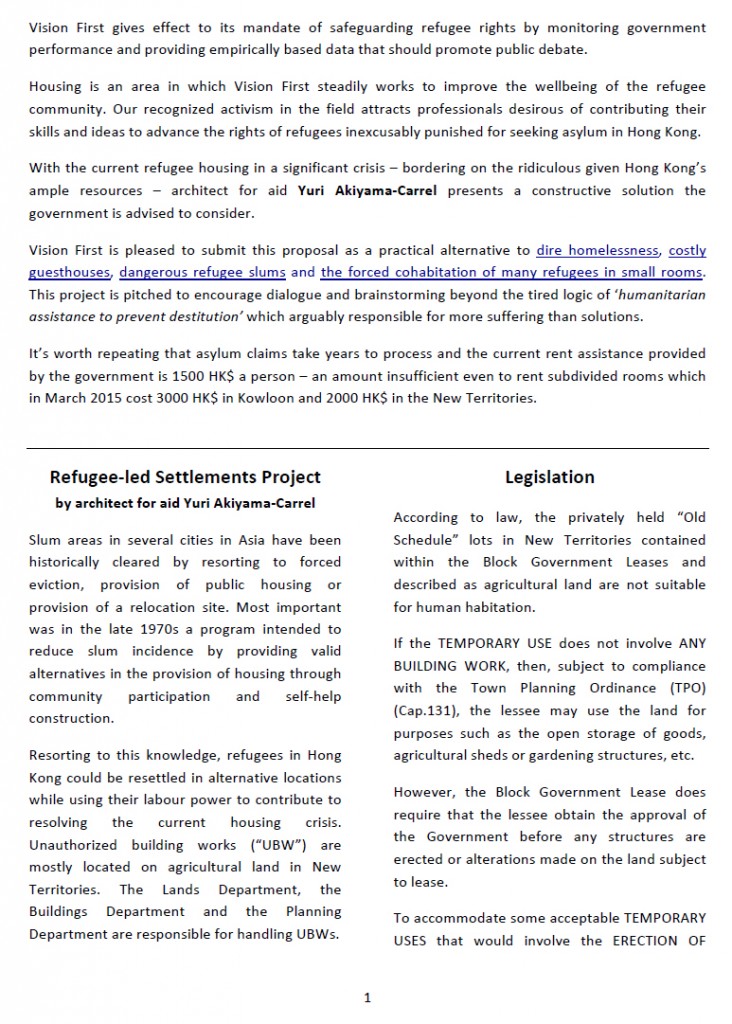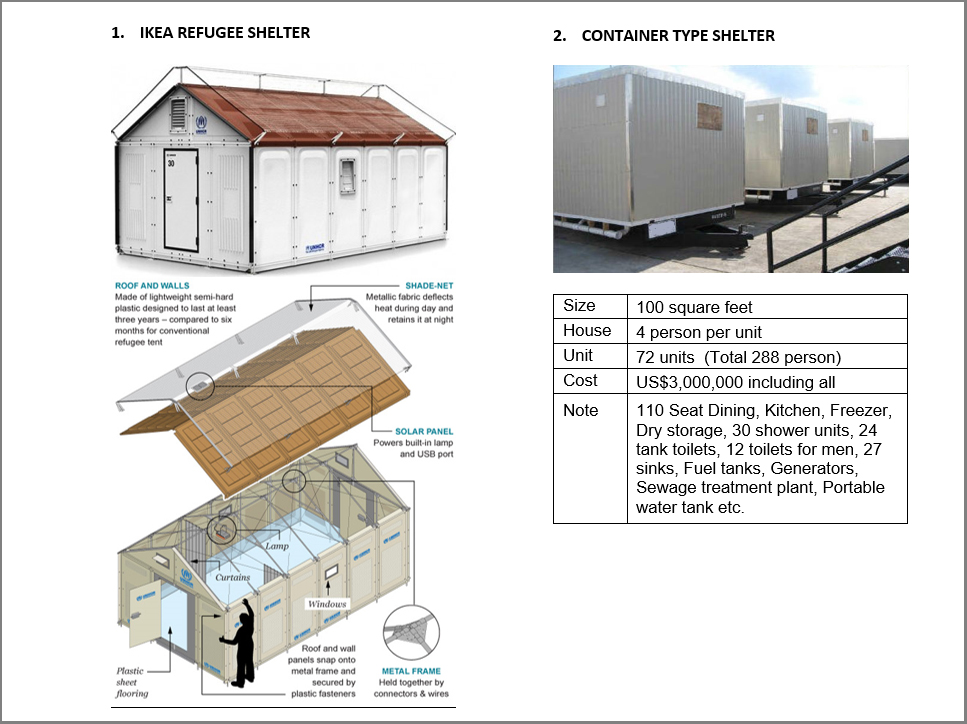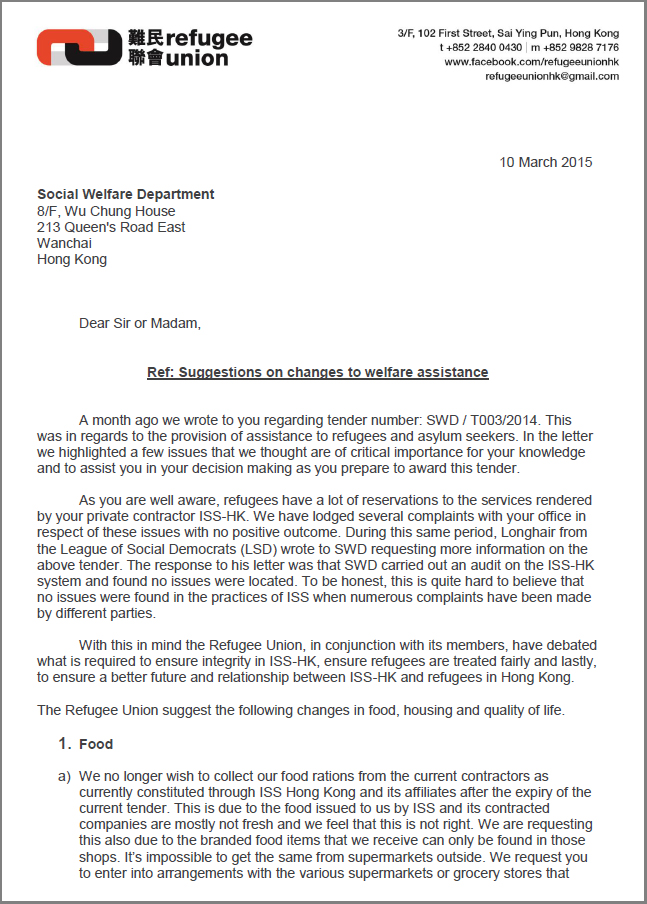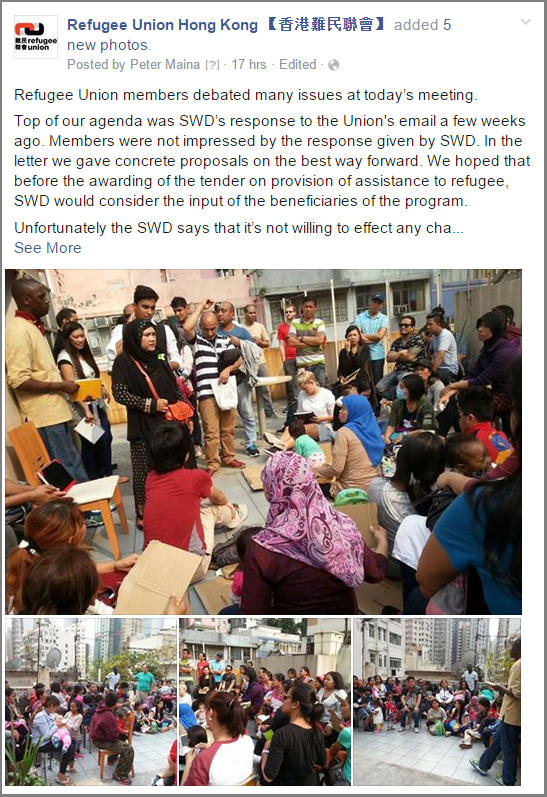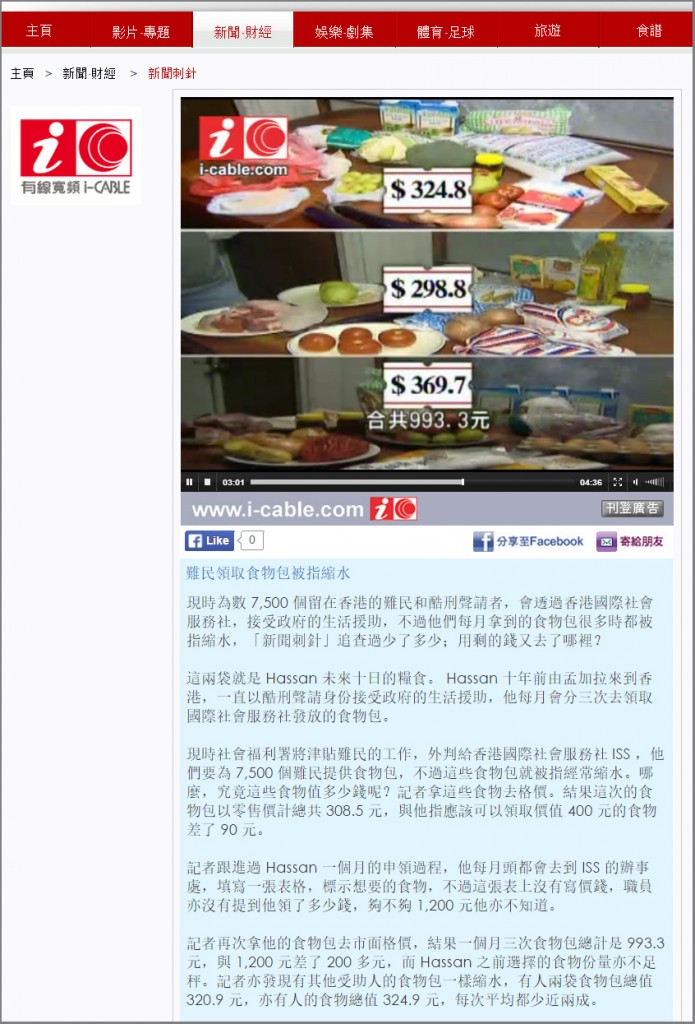The rule of law versus the real law
Mar 25th, 2015 | Crime, Food, Housing, Immigration, Welfare | Comment
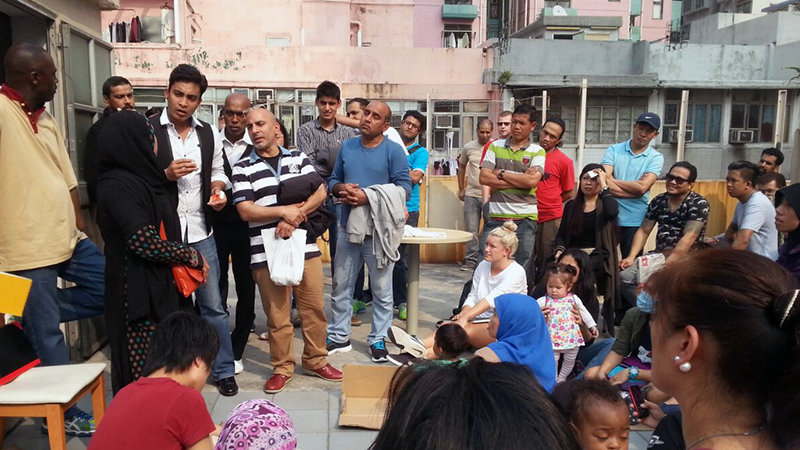
No solution in sight for refugee housing crisis constructed by SWD
Mar 25th, 2015 | Housing, VF Opinion, Welfare | Comment
“My home burned in the Tim Sum Tsuen fire. One month already I just sleep here and there. No one helps me to find a home. I really don’t know what to do. Actually there are many homes, but for $1500 where I can find one? When I try to ask ISS officer, they say only, “I will try to find room for you”. But when will they find it? Also one day a friend told me there was a home near the area of Tim Sum Tsuen. I was very happy, but it was too expensive at $4000. So I tried (to share with) two people, but ISS saying again, “You put $1000. You pay home balance yourself.” (The 2 person allowance is $3000). How I can pay? I have no work, no salary. Still I try to ask ISS, “OK you cut my food money by $500 and my friend’s too.” However again ISS officer said, “I can’t. So sorry,” and closed the phone.” (edited for clarity)
Vision First received this message from a refugee woman who lived in the slum with the rusty gate in Tim Sum Tsuen before it burned down in a blaze on 25 February 2015.
On 24 March 2015, the Refugee Union posted on Facebook rooms for 1900$, 2500$, 2700$ and 4000$, ranging from coffin-size with no window, to a one-bedroom suite. These are current market prices. Guesthouse rooms are no longer provided for homeless refugees, forcing many to share beds or sleep on the floor in the rooms of others. Contrary to what the authorities claim, very few rent subdivided rooms for 1500$ and such old contracts are probably coming to an end. What alternatives are there for refugees?
A new arrival slept on the sofa at Vision First for several months, “I want to get my own place, but the cheapest room is 1900$. How can I pay the 400$ difference every month? Will the government increase the rent allowance?” As a computer engineer he could get a job, but he is afraid of being arrested and being incarcerated for 15 months.
A couple from Sudan wrestled with the exorbitant prices of the cheapest flats for months, “ISS will only pay 3000$ and the smallest place we found was 3800$. I can get a medical certificate to raise my allowance to 2000$, but what about other refugees? Do they have to be sick to get more?”
Since refugees are destitute, the suggestion made by the Refugee Union to the Social Welfare Department is worth exploring: “We request the government, through its appointed officers in SWD, find suitable living locations for refugees and take part in the signing of rental agreements, creating a relationship between SWD and the landlord to ensure safe and practical living conditions are met.” Alternatively, Vision First advanced the proposal of a concerned volunteer who introduced the case for cheap temporary housing – “Refugee-led Settlements Project”
The plight of the disposed tarnishes the reputation of Hong Kong that hoards a surplus of US$ 8.2 billion while its most vulnerable citizens suffer. From cage people to struggling elderly and street-sleepers, the administration has little compassion for the downtrodden. It’s a bleak existence for those eking out a living at the bottom of society and, without work rights, refugees are the hardest hit. A genuine humanitarian consideration is regrettably lacking.
Hong Kong asylum system is in a shambles
Mar 20th, 2015 | Food, Housing, Immigration, Legal, VF Opinion, Welfare | Comment
The Unified Screening Mechanism may as well be said to have failed in keeping up with its promise of protection, remarked a senior lawyer at a Vision First meeting this month. He was of the opinion that the administration mismanaged the process to such an extent that fair-minded observers would not consider it a success, if not for rejecting 99.9% of asylum claims.
The big picture is alarming. USM was expected to finally process claimants, whose numbers hovered around 5000 for years. But in 2014 the number doubled to 10,000, with new claims lodged at more than 300 per month. This surge surprised the administration that expects a considerable rise in screening costs, welfare assistance and the publicly funded legal scheme.
The backlog of claims is expected to increase further as refugees becomes familiar with the “Right to life claim” (BOR 2) which requires that asylum bids be also assessed on grounds relating to Article 2 of the Hong Kong Bill of Rights Ordinance, which is binding on the Immigration Department.
From documentation acquired by Vision First and freely available on the LegCo website, it seems that rather than reviewing an asylum system, that seems to neither protect nor uphold refugee rights, the administration is considering fast-tracking screenings, affecting legal safeguards. However, placing departmental expediency and completion targets ahead of obligatory “high standards of fairness” will pave the way for extensive judicial reviews, warned the HKBA.
If the administration’s approach to screening and determination is cause for alarm, the welfare side is of little consolation. It should be pointed out that hundreds, if not thousands of claimants have been in limbo for years without adequate welfare or employment rights. Such unfair treatment inflicted unjustified hardship on already vulnerable persons who hoped to find sanctuary in Hong Kong.
Instead of protection, refugees experience rejection through countless difficulties that hamper their daily existence. It takes months to obtain assistance, during which time new arrivals are often left hungry and homeless, fending for themselves in the streets. “We signed the contract with ISS but cannot find a place for 3000$. Without a room ISS only provide dried food like biscuits, instant noodles and canned food!” lamented an African couple who has slept on a sofa-bed at Vision First for several weeks.
The mismanagement of food rations continues despite refugees vociferously protesting for more than a year. There might be a widening rift between the SWD and ISS-HK that exposes a communication problem, to put it gently, relating to millions of dollars in food allowances that failed to reach the plates of destitute and hungry refugees. “Where is the remaining money” questioned Cable TV.
The 69 refugee slums exposed by Vision First are emblematic of the faltering asylum system. As a matter of fairness and humanity, it is reasonable to expect that the slums be wound down gradually without mass evictions that cause preventable homelessness. To the contrary, the same indifference to the wellbeing of refugees manifested in the establishment of slums, is blatantly obvious in their abrupt closure without offering basic, functional and safe accommodation.
A distraught refugee recently made homeless exclaimed, “I waited seven years for Immigration to [determine] my case. Still no answer. Now I have no place to stay and nowhere I can rent for 1500$. Hong Kong wants all refugees to go away! If we could go to another country we would leave … but how?”
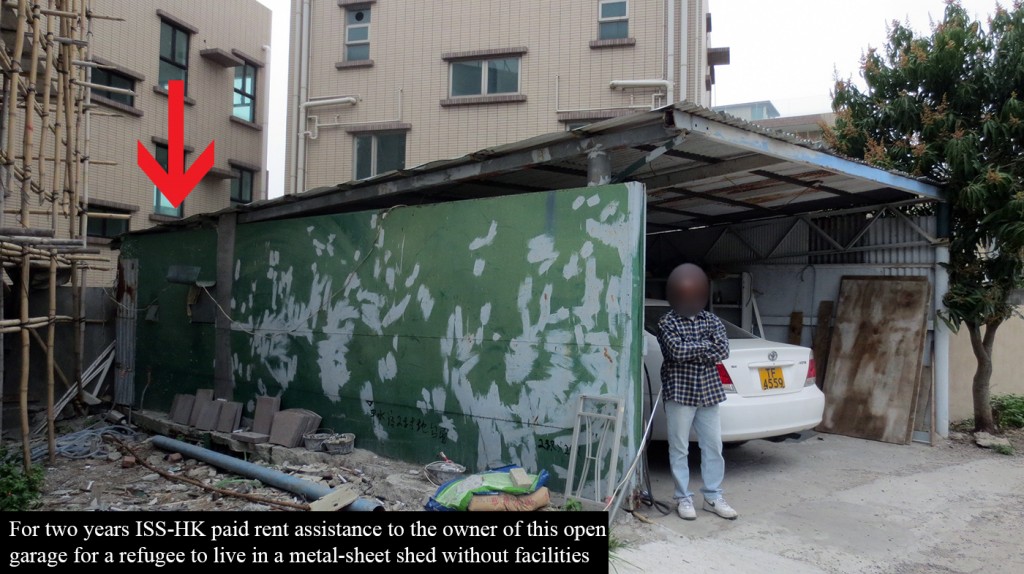
Refugee Union protests at Government House Open Day
Mar 16th, 2015 | Media, Refugee Community, Welfare | Comment
Refugee Union Press Notifcation 13 March 2015
Refugee protest at Government House
The Standard “Protesters pruned as crowds flock to gardens”
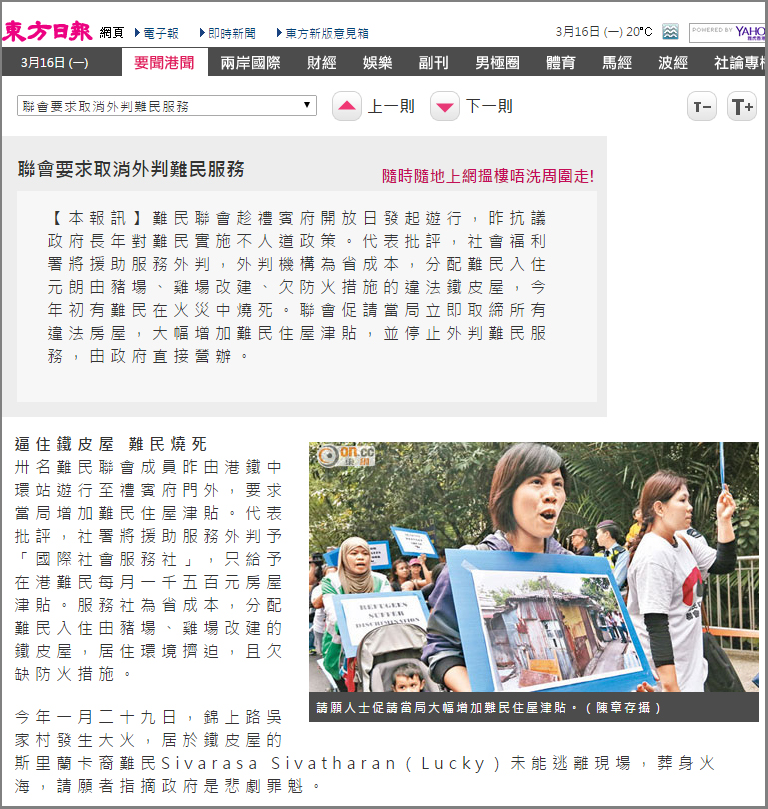
“No tin sheds” ISS-HK caseworkers say
Mar 12th, 2015 | Crime, Housing, VF Report, Welfare | Comment
The village of Ha Che (下輋) is located in the rural area of Pat Heung (八鄉) where a slum fire took the life of a Srilankan refugee on 25 January 2015. Vision First campaigned for two years against refugee slums and exposed the dangerous, unhygienic conditions refugees are forced to endure without assistance or resources to rent basic, functional and safe housing.
Truth is, the results we achieved prior to the two slum fires were debatable. The SWD contractor ISS-HK only closed down the worst compounds, while slum lords got busy improving access, structures and facilities in dozens of other ghettos that remained unchallenged, despite being in gross violation of countless rules and regulations.
Slum refurbishment and improvement was the new strategy. It didn’t seem to matter that tin sheds and wooden huts were unauthorized structures that failed to meet building, hygiene and safety standards. Provided rooms had four walls and a false ceilings, ramshackle structures were good enough to settle refugees.
A case in point was the development of an area in “The slum in three sheds” reported by Vision First on 12 June 2014. A scrap yard around a small and dilapidated ancestral house was constructed into a large slum after our visit. ISS-HK approved this location for refugees in September 2014 according to the local fixer who proudly showed us around the business he was hopping to grow.
The fixer (name withheld) said he is not the registered owner, but leases the agricultural lot excluding the old brick house. He is probably not a farmer because there is no cultivation, or chicken sheds such as the modern operation across the ditch where poultry is for sale. He appears to be fixer engaged with ISS-HK in the slum business for profit. (A fixer is a person who uses influence or makes arrangements for others, especially by improper or unlawful means)
He prides himself as a humanitarian, “I want to help refugees, they are homeless. We are Hong Kong people, we have heart. We don’t want people to suffer. I built these two sheds with 20 rooms, portable toilets, outside kitchens. There is firefighting equipment everywhere … Where is the danger? ISS said no good. ISS stopped paying rent. Where should these foreigners go? Should I kick them into the street? Will you pay their rent? Why this place is no good?”
The fixer is upset with ISS-HK and feels unjustly treated. The fact that he erected illegal structures without permits escapes him. Water splashes inside the container when he flushes the primitive contraptions offered as toilet-shower to demonstrate that water flushes human waste into the field. The mobile kitchens are so rudimentary refugees don’t use them.
It appears that the fixer entered the slum business too late. He explained that the shed with 12 rooms rented to ISS-HK in September 2014, while the one with 8 rooms was operational in October. He gave us a tour kicking metal sheet to prove stability. “There were many refugees living her, but they left after ISS stopped paying rent” he laments.
The fixer is bitter, “I spent a lot of money to make these rooms. I told ISS I will build brick toilets in the field, but they said no good. There are buckets of water [for firefighting], but ISS said no good. Is this fair? From September till February they approved 20 refugees to live here, then they said, ‘No tin sheds.’ Who will pay me back the money I spent here? I cannot rent these rooms to locals. Even students will not live here. What am I supposed to do?”
Transcript of Cable TV report on shrunken food supplies
Mar 11th, 2015 | Crime, Food, Media, Welfare | Comment
Translation of the Cable TV report on shrunken food assistance to refugees, aired on 9 March 2015.
There are 7,500 refugees and torture claimants in Hong Kong who receive government assistance through the International Social Service (ISS-HK). However, the food rations they collect every month are ‘shrunken’. We investigated how much the ‘shrinkage’ is and where the missing money goes.
These 2 bags are the 10-days food collection of Hassan. Hassan came from Bangladesh to Hong Kong ten years ago and he receives government assistance as a torture claimant. Every month he goes to one of ISS [appointed grocery shops] three times to collect his food allowance.
Currently the Social Welfare Department outsources the refugee welfare service to International Social Service (ISS-HK) who arrange the food packages for 7,500 refugees, but the food collected is found to be ‘shrunken’. So, how much is the food worth? Our reports took the food to the market to check the value. The retail price of these [two bags of] food is $308.50, or $90 less than the price official price of $400.
Our reporter followed Hassan for a month. At the beginning of every month he goes to ISS office to fill in forms or his preferred food. But the forms do not indicate the price and the case worker does not inform the price of the food items he selected. He doesn’t know if it worth $1,200 [as indicated in official government communication].
Our reporter took his food packages to check at market prices. The total price of his monthly food was $993.30, or $200 less than his $1200 food allowance. Also the weight of the food Hassan collected is less than what he selected in the forms. Our reporter also found that other refugees receive ‘shrunken’ food collections. One refugees’ two bags collection was worth $320.90 only, and another refugee’s collection was worth $324.90. Both were about 20% less than [the food allowance].
International Social Service pointed out that if the $1,200 food subsidy is not used up, it will be returned to the government. However, Social Welfare Department reported that between the years 2010 and 2012 it disbursed 320 million HKD to ISS-HK. After the contract finished, ISS-HK returned 6.4 million HKD to the government as a reimbursement of administrative fees.
So, where is the remaining money? Our reporter asked ISS-HK again and they said the remaining money will be used for new collections [in subsequent months] until it is used up. And about the ‘shrinkage’ of the food, ISS-HK said refugees can weigh it themselves and if it is less than the standard amount they can ask to receive more.
Social Welfare Department said they will monitor the service quality of ISS-HK and how public money is used. Recently they also decided to change from in-kind food assistance to a coupon system in the new tender.
RU suggests changes in welfare assistance
Mar 10th, 2015 | Food, Housing, Refugee Community, Welfare | Comment
i-Cable: Value of refugee food assistance does not add up
Mar 9th, 2015 | Crime, Food, Media, Welfare | Comment


